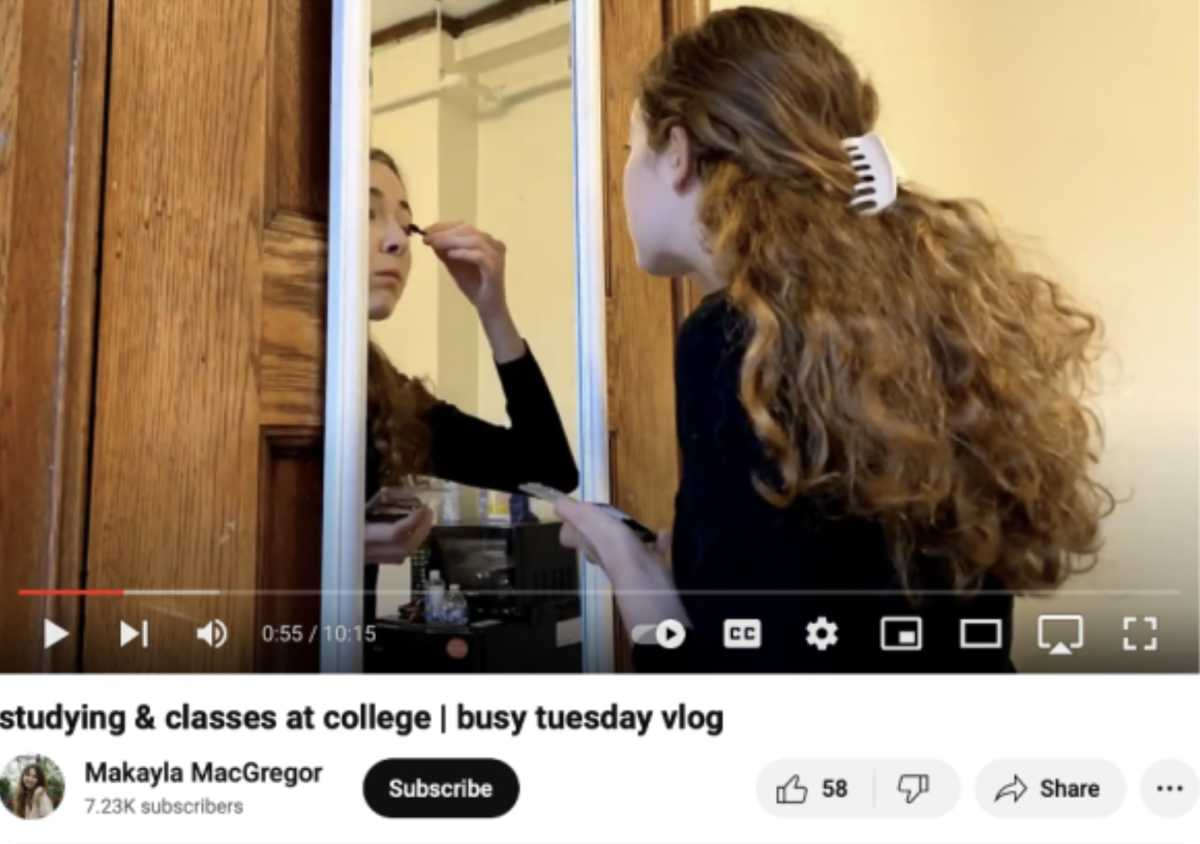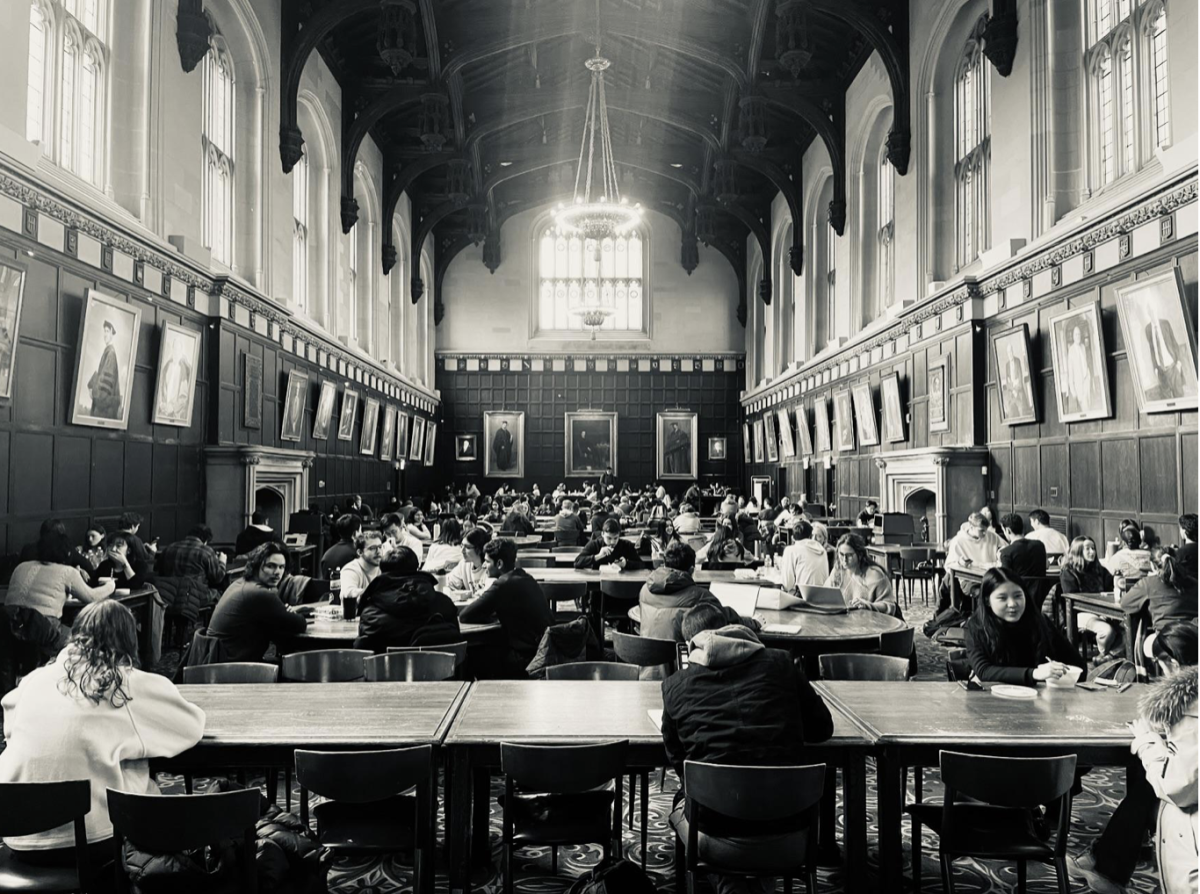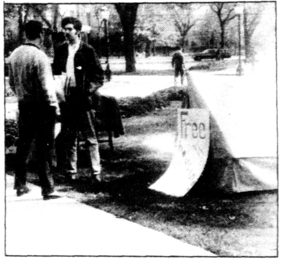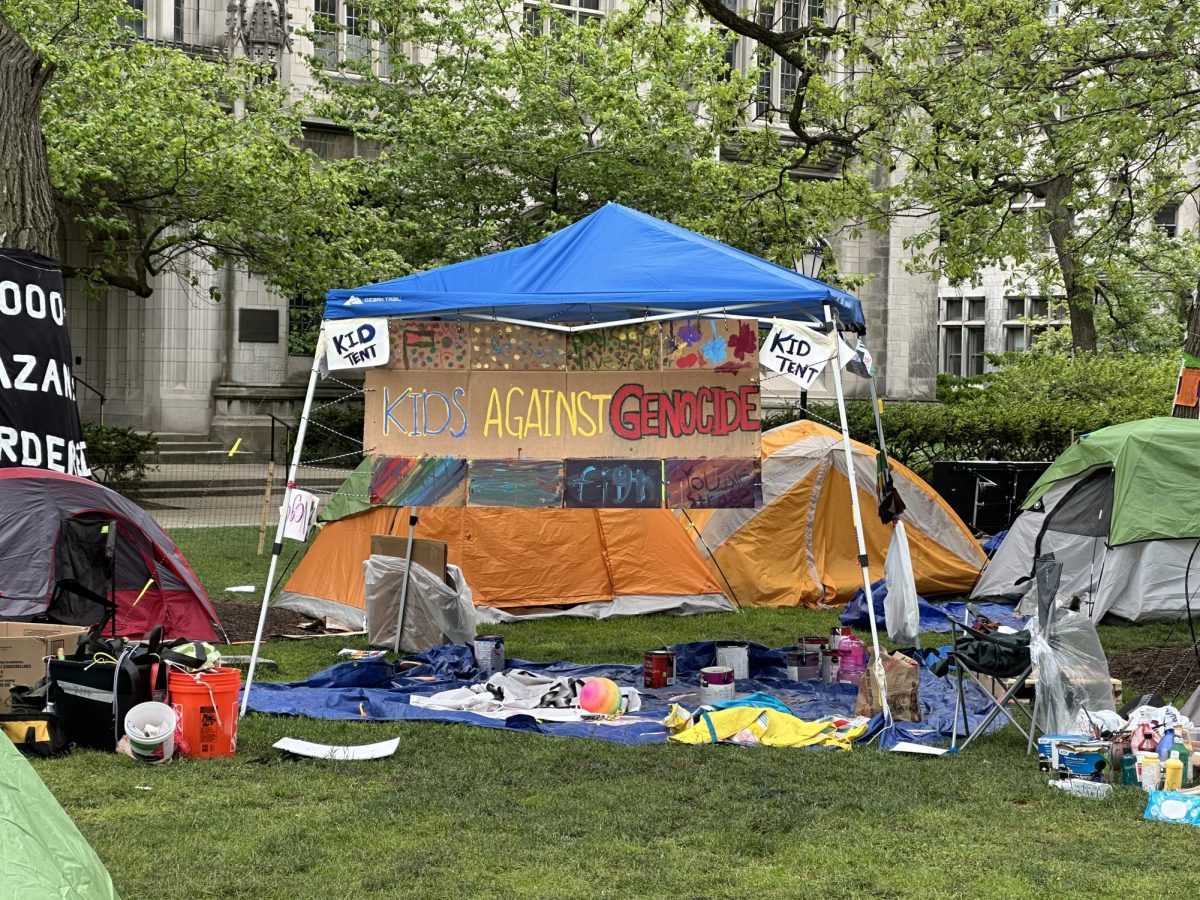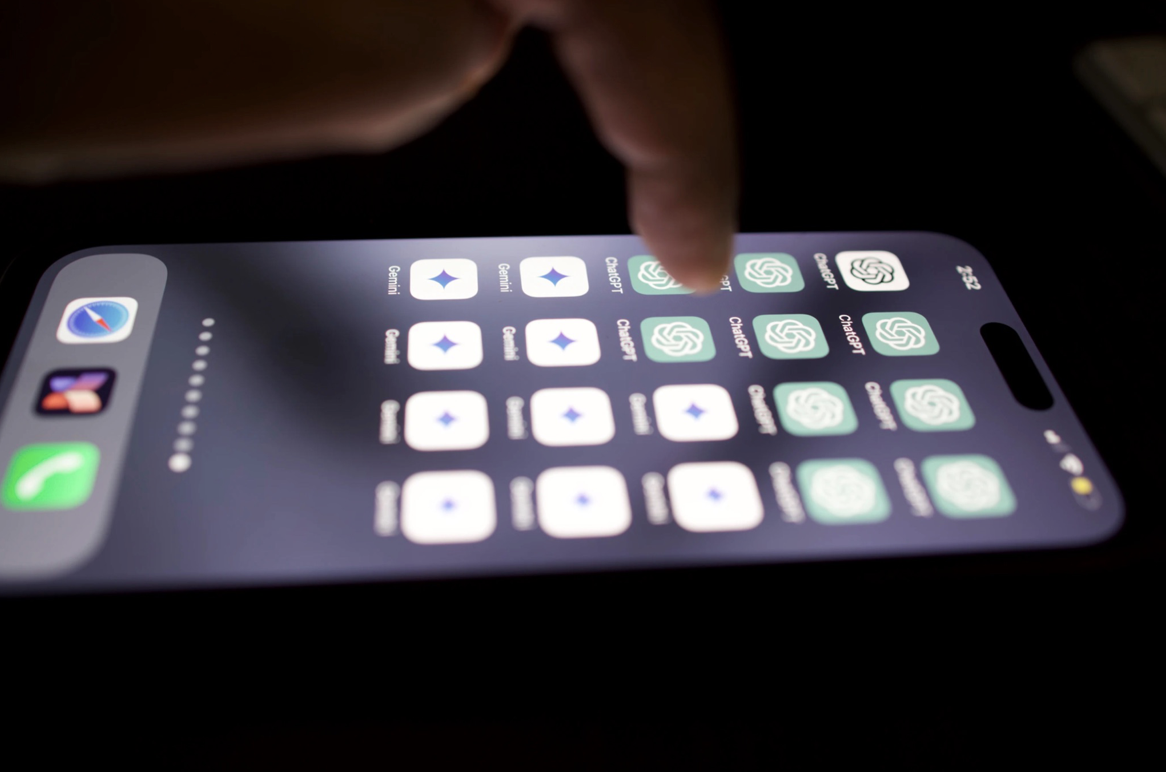Mr. Query’s home was a unique one, having four stories with 60 square feet apiece, a fireman’s pole in lieu of stairs, and a basement floor 10 feet above the ground. It was built in an alley between two other apartment buildings; upon being informed of the construction plans, the inhabitants of these abodes resolved to take an interest in human rights (namely, theirs) and stretched themselves out into a carpet of smoldering moral outrage, in the hopes of preserving the view through their windows and their single communal parking space, which had a storied history of power struggles and daring occupations to rival that of Prussia. Alas, the construction foreman was a pragmatist, and he ran a pair of I-beams through the space above their heads, with each end resting on a second-story windowsill. The house went up from there.
When Mr. Query bought the house for a two-dollar bill, he nailed two sheets of plywood to the bottom of the frame to create a sort of shed, bordered on the other two sides by irate apartment walls. In this shed Mr. Query kept his bicycle. Mr. Query put food out for the bicycle every night in case it happened to develop a digestive system while he slept, and he spent the better part of October riding his bicycle through the leaves overflowing from the street curbs, for he had a feeling this was the sort of thing bicycles enjoyed, and he, at any rate, enjoyed it too.
Mr. Query rode the bicycle to the library six and a half days each week, where he was responsible for shelving books on the top shelf. There were five other shelves on which books needed to be shelved, and thus five other shelvers were employed in a capacity similar to Mr. Query’s. This staff plan had been passed down from the National Board of Gratuitous Intrusion into the Day-to-Day Operation of Public Facilities of a Scholarly Nature some years prior, and was implemented mere weeks before the aforesaid entity was revealed, to the shock of the nation, not to exist. Consequently, the source of the directive was (indeed, is) a profound mystery to the library staff, but since six competent persons whose eyes were situated at precisely the same height as their respective shelves had already been hired, the influence of the inscrutable Board lived on.
One Wednesday night, Mr. Query made it home in high spirits around eight o’clock (his brakes had not been applied once; he hated squeezing the polished metal rib and was fairly sure the bike hated it too). He made a good show of fiddling with the padlock on the shed to create an illusion of security (for he had a firm moral opposition to locked doors), arranged the bicycle in its lodgings, divested himself of scarf and gloves, and upon turning ’round to hang his coat, saw that it was beginning to snow. He stood at the little square window and watched the flakes collect on the ledge outside. First the wood was evenly blanketed, then trim spires built up in each corner, and finally all the glass that wasn’t obscured by the snow was opaque from the steam of his question-mark nose. He stepped back reluctantly, and ascended the pole hand over hand with an unmistakable sense that he had left some unfinished business.
He went up to the fourth story to wash, down to the first story to prepare a casserole, down to the shed to offer it to the bicycle, and back up to the third to his bed. He settled himself in the soft folds, realized with a start he’d forgotten to lock the shed, and then realized with a stop that the shed was never locked at all. He reflected on how unfair it was that the Holy Ghost got totally written out of the Bible, but this thought failed to send his mind coursing down a river of profound thought, and so Mr. Query succumbed to sleep.
There were high granite walls stained by rain, and a thick curtain of trees all around the outside of the enclosure, so he couldn’t see where their trunks ended, and he would have investigated but he was inside a labyrinth formed by waist-high, neatly maintained hedgerows. He found he couldn’t lift his feet from the warm, chalky soil to step over them (not that he wanted to, anyway), so he simply wandered, wondering why he was growing increasingly ill at ease, until he realized with peculiar clarity that this was not his dream, and if it was not his dream, it must be somebody else’s, in which case he was an intruder. The instant these deductions had passed through his mind, he leapt from the dream with such mortified force that he collided with his bedroom wall, knocking a large, empty fishbowl from its accustomed position above his bed. It landed neatly over his head.
When he lifted it off, in a daze, he saw it was not empty, though it was upside-down. A nebulous, shifting haze attested to the presence of something confined and constantly in motion, as if he were watching a stand of trees swaying in the wind through the sheer screen that forms above a campfire. He covered the opening with his blankets, took the bowl down to his second-story workshop, and tied a string around the opening to secure the fabric. He placed the bowl on a high shelf, shrouded like a birdcage. He returned to his mattress just as his collision-induced confusion subsided, and comprehended for the first time (although he had known it for a few minutes already) that someone else’s dream was swimming around in his fishbowl.
He rose with the sun and prepared a series of posters, which were duly posted on every telephone pole he happened across on his trek to work. Each declared “FOUND—a dream” across the top, featured a meticulous watercolor illustration of said dream, and bore contact information of varying reliability along the bottom. One sign provided eight sets of cogently prepared maps to his house that folded out like grasshopper wings, one for each of the world’s continents and an additional one for residents of Bathurst, New South Wales. Another had the phone number of Mr. Query’s old elementary school, with “Ask for Mrs. Gateshead” in neat brackets. The former was affixed to a service pole within reach of Mr. Query’s bathroom window, 45 feet above the ground, and Mr. Query took down the latter at lunch hour; he scribbled a useful addendum (“Mrs. Gateshead is deceased—sorry”) before replacing it.
The following morning, he pasted a cataloguing sticker on the bowl, but left the title and author blank until further notice. He placed the bowl into the library drop box on his way inside, then went behind the counter, retrieved it, and placed it on the top shelf in General Fiction. Mr. Query had something to look forward to.


